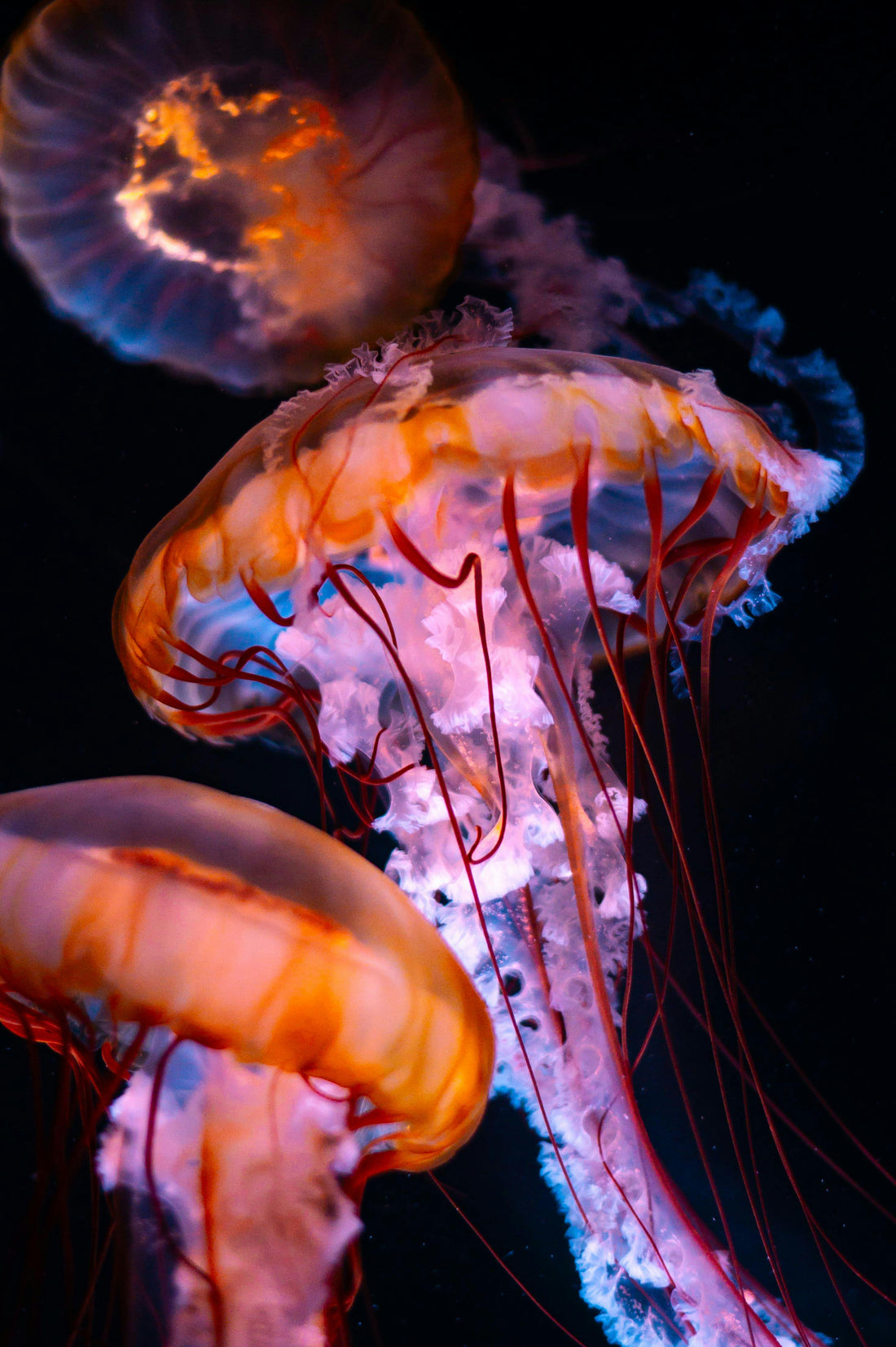
🌊 6 Secrets of the Deep Blue That Will Blow Your Mind
Explore the eerie, glowing, and mind-bending truths that lurk beneath the surface of our oceans. Ready to dive in? What’s lurking in the ocean’s darkest depths will leave you speechless…
🧠 1. It’s Pitch Black… But Never Silent
🌊 Midnight Zone: More than 1000 Metres deep into the Ocean
🔊 The ocean’s midnight zone is dark as outer space — but filled with sound!🐋 Whales sing haunting songs, fish click and grunt, and even squid make noise.
🔊 Sound travels faster underwater, making it a noisy world where vision fails.
💥 Heard of “The Bloop”? It was a mysterious sound so loud it echoed across the Pacific — now believed to be an iceberg breaking apart!
🐙 2. Giant Creatures Are Down There
🦐 Ever seen a shrimp the size of a kitten? Or a squid with eyes like dinner plates?
🌡️ Thanks to deep-sea pressure and cold, animals grow way bigger than usual — it’s called deep-sea gigantism.
🦑 The colossal squid can reach 12m long, and deep-sea isopods look like armored bugs from a sci-fi movie.
🔍 Scientists are still discovering new giants today!
💡 3. Creatures That Glow in the Dark
✨Over 90% of deep-sea animals create their own light — naturally!
⚡ Called bioluminescence, this glow is used to hunt, hide, flirt, or distract predators.
🐟 The anglerfish’s glowing lure is like a flashlight of doom.
🎇 Some jellyfish flash bright lights when attacked — summoning predators of their predators!
🌋 4. There Are Lakes & Volcanoes Underwater?!
👍Yes — and they’re weirder than sci-fi.
🌊 The deep ocean hides underwater rivers, methane lakes, and erupting volcanoes.
🔥 In short, Submarine Volcanoes emerges through magma from the Earth’s mantle which rises through cracks in the crust.
*Fun Fact: When magma hits cold seawater, it cools quickly and forms new rock called pillow lava, which looks like rounded blobs. Over time, repeated eruptions build underwater mountains and volcanic islands.
⚠️ The underwater lakes are so salty and toxic, most creatures die if they enter. Underwater lakes are pools of very salty water that collect on the ocean floor. The salt makes the water much heavier than normal seawater, so it sinks and stays separate, like a lake underwater. These salty pools often form where salt from beneath the seafloor dissolves and gathers in low spots, creating a strange, separate “lake” beneath the sea.
🦕 5. Some Deep Sea Creatures Are Older Than Dinosaurs
🐟 Imagine a fish that hasn’t changed in 400 million years.
🧬 Meet the coelacanth — thought extinct until it was caught off a fishing boat in 1938.
🦈 Other deep-sea sharks live over 500 years, quietly roaming the depths.
📜 These ancient species are known as living fossils — relics of a time before T. rex.
*Fun Fact: Crocodiles/Alligators, Horseshoe Crabs and Sharks also lived in the 'Age of Dinosaurs'!
🧭 6. 80% of the Ocean Is STILL Unexplored
🌕 We’ve mapped more of the Moon than our own ocean floor.
🌌 That’s right — over 80% of Earth’s oceans remain unseen by humans.
🛠️ Deep trenches, crushing pressure, and icy darkness make exploration incredibly hard.
🧪 This means there could still be unknown species, sunken cities, or ecosystems unlike anything we’ve seen!
🌊 Final Thoughts: The Deep Blue’s Greatest Mysteries Await
The ocean’s depths are truly one of the last great frontiers on Earth — a realm of darkness, giants, glowing creatures, and strange landscapes that feel more alien than earthly. From mysterious sounds that echo through the midnight zone to ancient animals surviving unchanged for millions of years, the deep sea reminds us how much there still is to discover beneath the waves. With over 80% unexplored, who knows what incredible secrets remain hidden in the abyss? The ocean’s depths invite us to keep exploring, to keep asking questions, and to marvel at a world both beautiful and bizarre — a world that will continue to blow our minds for generations to come.
